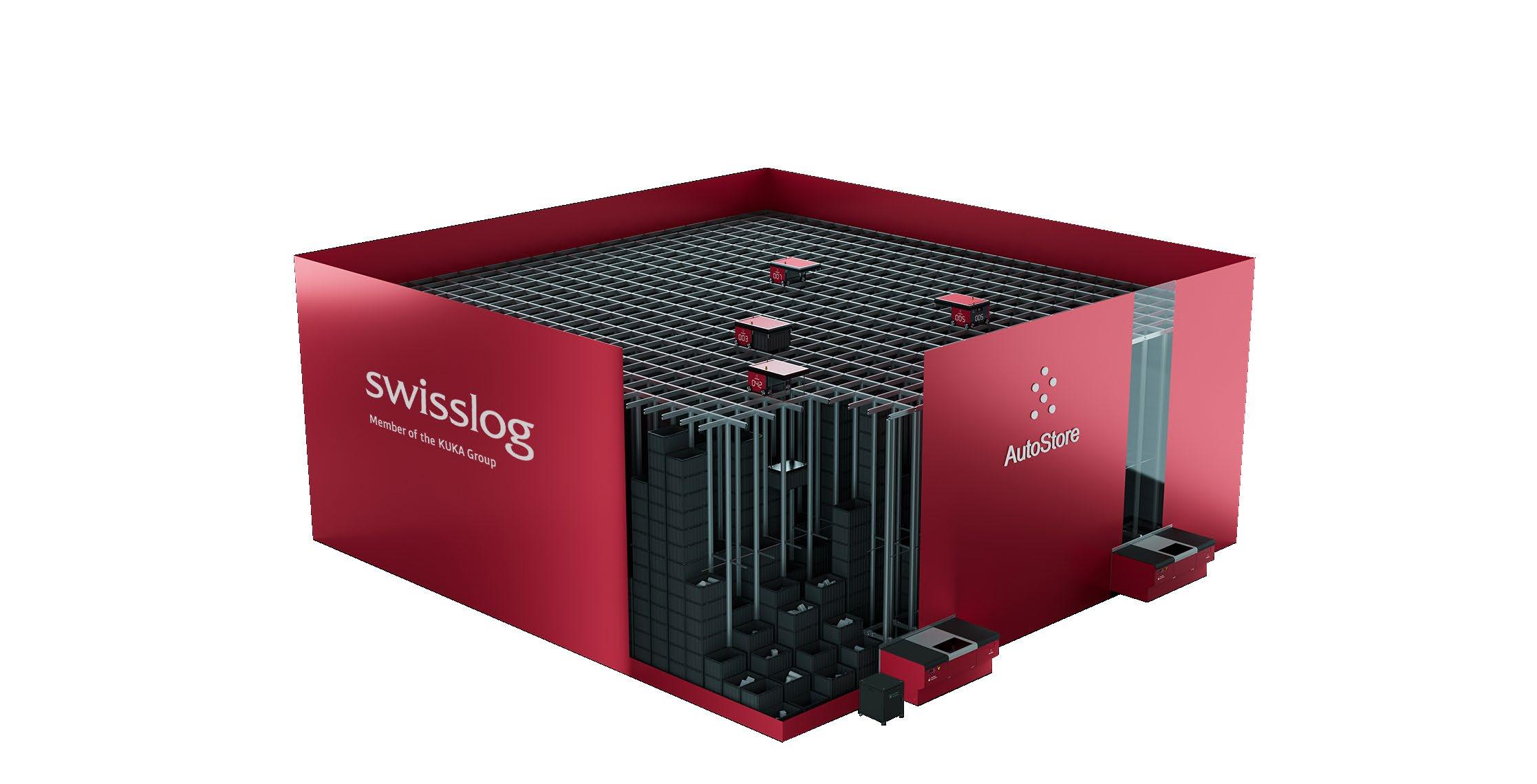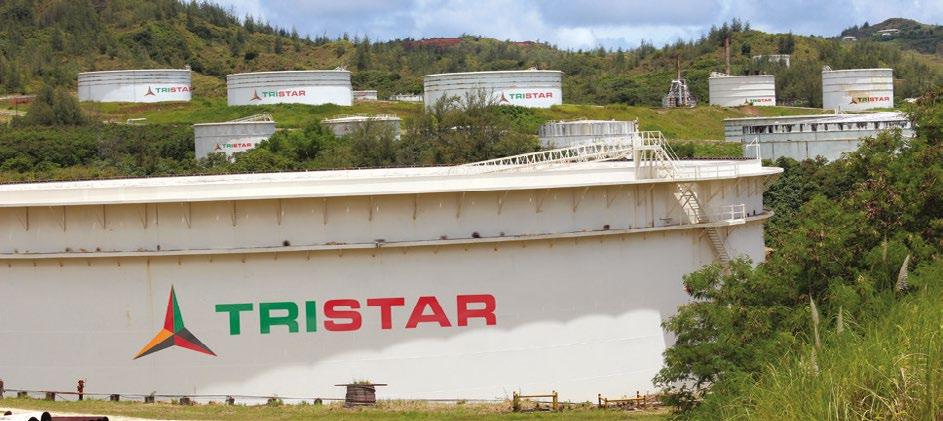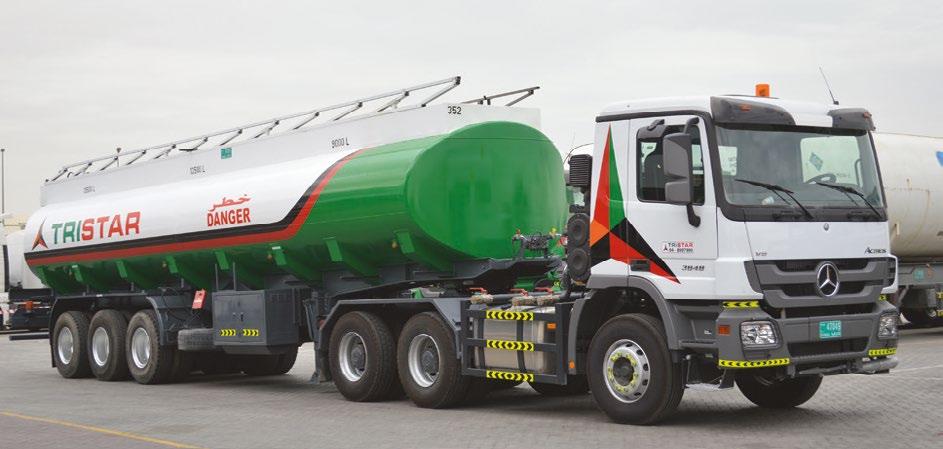
6 minute read
The Pressure is On
Bolt-on Store Automation uses compact, robotic automation technologies to create small fulfilment centres at the back of the store that automate current manual processes for non-perishable item picking while utilising store inventory to top off orders with perishable goods. This allows them to fill complete orders from one location, reducing transportation time and costs.
Micro-fulfilment Centres create an opportunity to convert abandoned or underperforming retail outlets into microfulfilment centres that serve the same area as a traditional grocery store with automated fulfilment for curbside pickup or home delivery. This strategy sacrifices in-store shopping so it is particularly attractive to pure-play e-grocers but creates the opportunity to optimise the environment by efficiently integrating automated and manual picking. It allows grocers who don’t have an existing brick-and-mortar footprint within a particular area to move fulfilment closer to customers, reduce transportation costs, and enable shorter delivery times.
Advertisement
The Automated Grocery Store is a new type of grocery store that combines automated e-fulfilment with traditional shopping. Still an emerging concept, it integrates the automation into the shopping environment, allowing shoppers to have the flexibility to place their orders in advance or while in the store, to pick their own perishable items, or to have the store complete their order for pickup or delivery.
E-Grocery Automation Technologies provide groceries with a range of automation solutions to choose from. The best solution will depend to a degree on the selected e-fulfilment strategy, but as with e-commerce automation in general, grocers should seek out solutions that are flexible, data-driven, and robotic to ensure they won’t become obsolete as the market changes and can leverage new technologies as they emerge. There are multiple niche solutions being developed today to capitalise on the growth in e-grocery fulfilment, the primary automation solutions being used or considered are either robot-assisted picking or goods-toperson automation systems.
Goods-to-person picking is a concept that has been widely adopted in e-commerce and multi-channel warehouses to enable higher productivity and faster order fulfilment times. Instead of pickers walking up and down warehouse aisles to pull orders, the goodsto-person system allows the picker to remain stationary, with an automated storage and retrieval system delivering the products they need to fulfil the next order as it is needed. Pick time is thus reduced significantly, and accuracy is improved, while pickers experience less fatigue.
Robotic-Assisted Picking is another approach, in which a robot guides the picker through the store to optimise travel based on the location of the items to be picked and allowing multiple orders to be picked at the same time. The robot leads the shopper through the aisles in the most efficient manner and even guides the picker on how to package the order, determining which stock-keeping units (SKUs) should be put into which grocery bag based on criteria, such as the maximum weight for a bag, crushability and whether items need to be segregated by temperature.
Automation has proven to be a sustainable and future-focused solution and it is becoming a competitive differentiator that can help companies uplift their operations without affecting business continuity while offering the smooth and organised experience for customers.
Integrated Energy Logistics Provider
The Tristar Group is a fully integrated Logistics Solutions provider that offers a comprehensive list of services to cater to the needs of the petroleum, chemical and petrochemical industries, both in the region and globally. The company’s core expertise lies in its ability to safely handle and distribute all types of retail fuels, lubricants, chemicals, petrochemicals and liquid gases.
Specialized Warehousing for Chemicals & Dangerous Goods


Commercial Aviation Refueling
The JAFZA South custom built warehouse has the capability to offer both ambient and temperature controlled storage for a wider range of petroleum products, including industrial solvents and soft chemicals. Total warehouse capacity is in excess of 15,000 pallet positions. The facility has an in-house fully automatic tank cleaning facility installed by Groninger (Europe). The tanks will be cleaned with soft water with chlorine content less than 50PPM alongside with a high pressure pump of 100 bar and a Boiler designed to produce steam at 1.2 TPH, which generates hot water of 80 Degrees Celsius. A fully automated effluent treatment plant will treat and recycle all waste water from the cleaning station to be used for general cleaning and irrigation purposes.

Polymer Bulk & Bagging Warehouse The multi logistics polymers facility in JAFZA South is designed for receiving bulk PP/PE granules into silos and bagging of the granules by fully automated bagging operation into FFS film bags and/or big bags. The packed material can be stored inside the warehouse in racking with a capacity of 8,000 tons. It also has a drum filling station with capability to drum from ISO tanks and road tankers thus providing customers a solution to receive in bulk and store and distribute in packed conditions. Road Transport Tristar owns and operates over 1,700 vehicles ranging from road tankers, trailers and delivery pickups in the Middle East, Asia and Africa. Operations are certified for Integrated Management System including the latest ISO 9001, ISO 14001, ISO 45001 and ISO 39001. Tristar is periodically assessed by the Gulf Petrochemicals and Chemicals Association for SQAS (Safety and Quality Assessment System).
Tristar is into Commercial Aviation Refueling operations in South Sudan and Liberia. It has a 25-year contract with CAA Uganda for the construction and operation of an Aviation Fuel Farm and Hydrant Line facilities at Entebbe Airport which will commence operations in the 4th quarter of 2020. Tristar’s Aviation facilities comply with international standards, specifications and guidelines set by IATA, JIG, AFQRJOS, as well as with IFQP requirements set by Airlines for Aviation Fuel Quality Control and Operating Procedures. Tristar has been a member of IATA since 2008 and recently became a JIG member. It has a technical service agreement with Hansaconsult.


Fuel Farm
Tristar owns, operates and manages 62 fuel farms globally with a storage capacity of more than 788 million liters for handling a wide range of petroleum products like Jet Fuel, Gasoline, Gasoil, Fuel Oil, etc. Tristar’s fuel farms and storage depots are constructed and maintained in the services of its clients. Our largest fuel farm is in the Pacific island of Guam which has a capacity of 4.2M barrels. All the operations comply with the local and international safety and environment standards, including OSHA and USEPA.

Shipping The shipping business acquired Eships in early 2016 and now owns and operates more than 30 chemical, oil and gas tankers and bulk carriers trading globally, mostly with Oil Majors. The vessels include the six Eco MR tankers (50,000 DWT) delivered in 2016 and the six new build 25,000 MT DWT, IMO Type 2 Oil and Chemical tankers to be delivered between June 2020 till January 2021. These ships are fitted with fuel saving equipment such as the Propeller Boss Cap Fins and Trim Optimization System.










